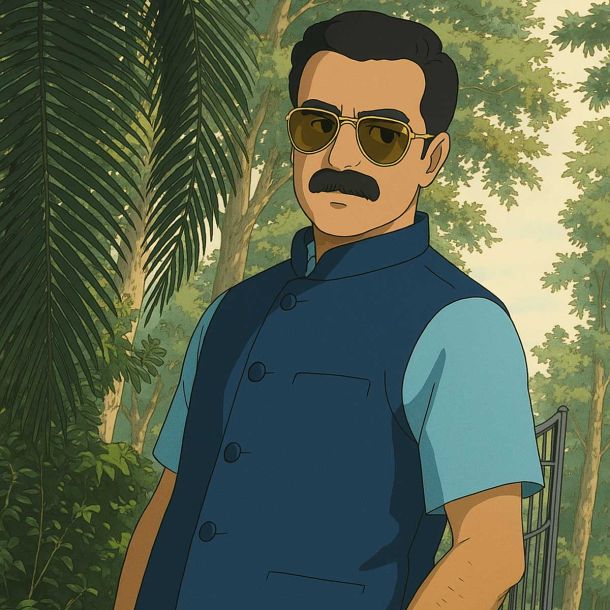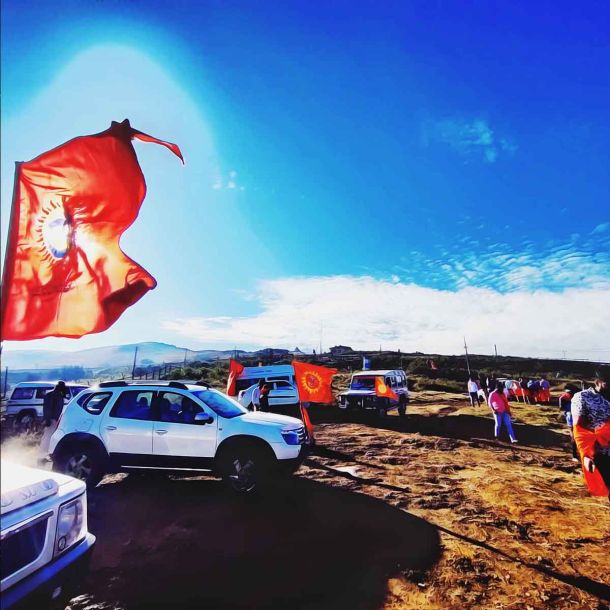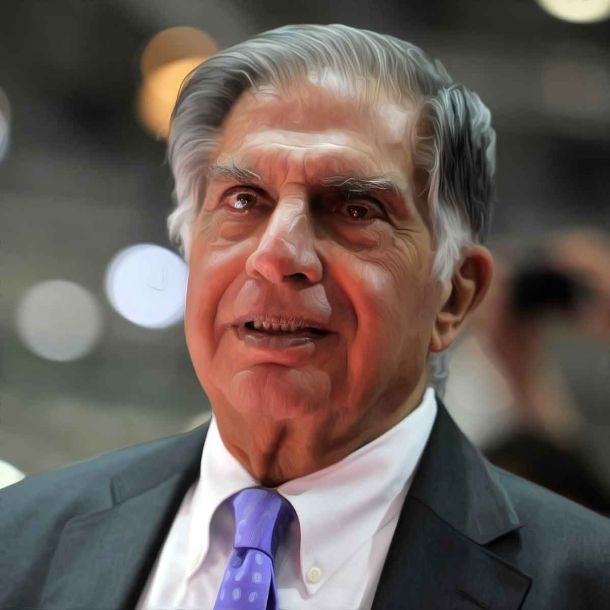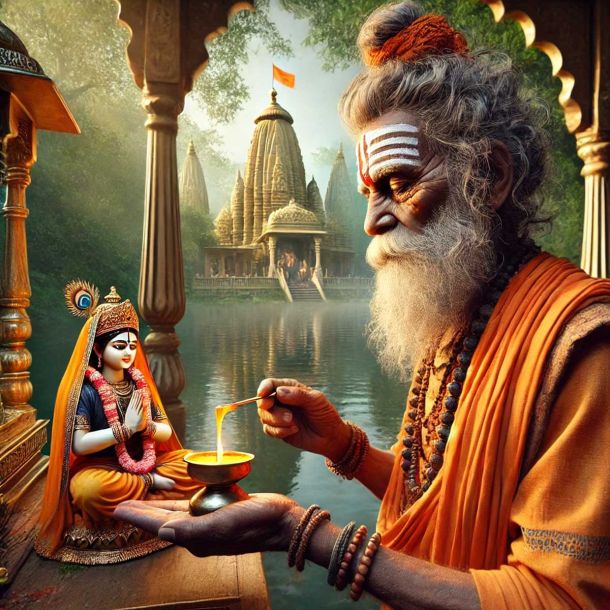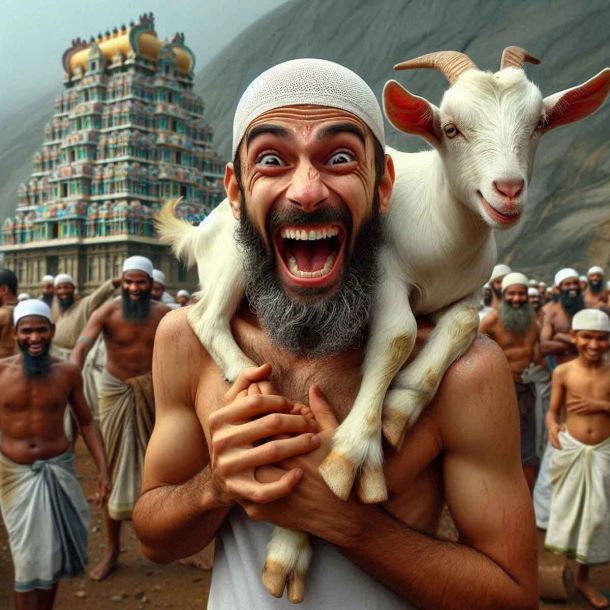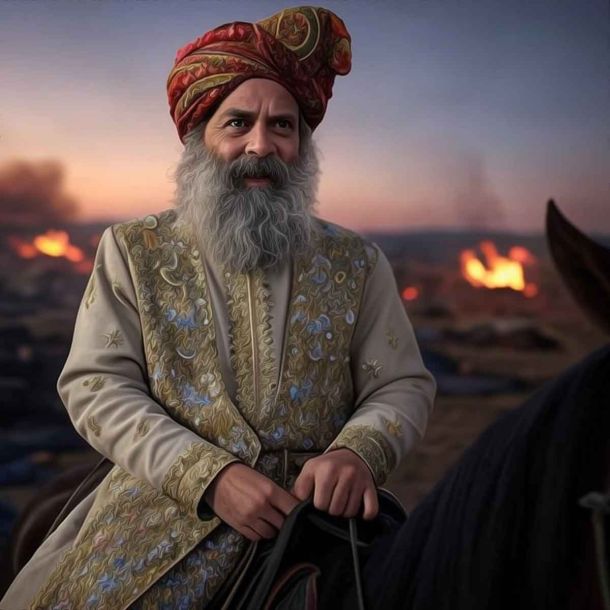More Coverage
Twitter Coverage
Satyaagrah
Written on
Satyaagrah
Written on
Satyaagrah
Written on
Satyaagrah
Written on
Satyaagrah
Written on
Join Satyaagrah Social Media
Letter to Shaheed Sukhdev 5th April, 1929 - Collected work of Shaheed Bhagat Singh and his Co-patriots
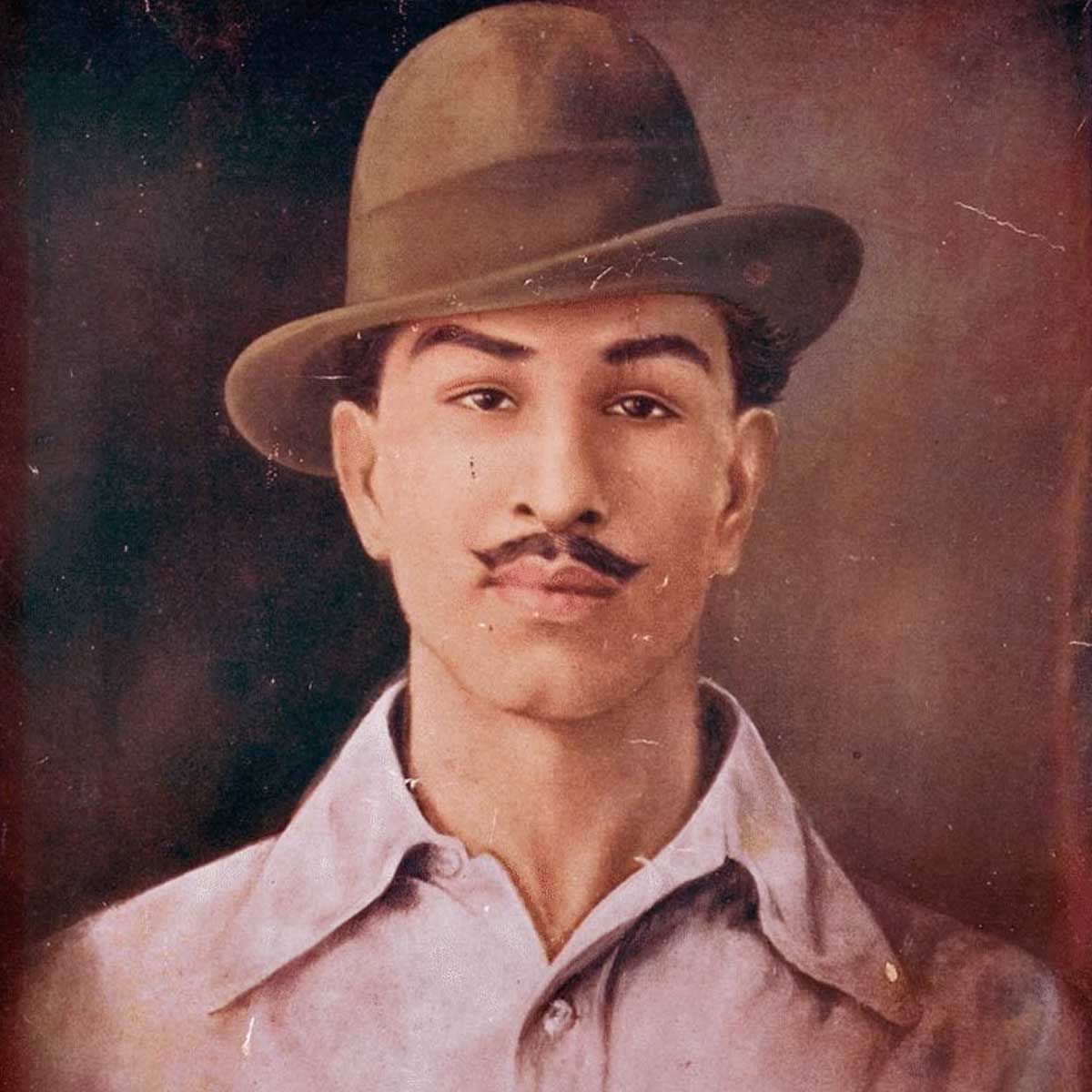
This letter deals with the views of Bhagat Singh on the question of love and sacrifice in the life of a revolutionary. It was written on April 5, 1929 in Sita Ram Bazar House, Delhi. The letter was taken to Lahore by Shri Shiv Verma and handed over to Sukhdev it was recovered from him at the time of his arrest on April 13 and was produced as one of the exhbits in Lahore Conspiracy Case.
Dear Brother,
By the time you receive this letter I will be gone, going to a far off destination. Let me assure that I am prepared for the voyage inspite of all the sweet memory and inspite of all the charms of my life here. Upto this day one thing pinched in my heart and it was this that my brother, my own brother, misunderstood and accused me of a very serious charge - the charge of weakness. Today I am quite satisfied, today more than ever do I feel that was nothing, but a misunderstanding, a wrong calculation. My overfrankness was interpreted as my talkativeness, and my confession as my weakness. And now I feel it was misunderstanding and only is understanding. I am not weak, not weaker than anyone amongest us, brother. With a clear heart I go, will you clear too? It will be very kind of you. But note that you are to take no hasty step, soberly and calmly you are to carry on the work. Don't try to take the chance at the very outset. You have some duty towards the public, and that you can fulfil by continuing this work. As a suggestion I would say that M.R. Shastri* appeals to me more than ever. Try to bring him in the arena, provided he himself may be willing, clearly knowing the dark future. Let him mix with men and study their psychology. If he will work in the right spirit, he will be the better judge. Arrange as you may deem fit. Now, brother, let us be happy.
By the way, I am say that I cannot help arguing once again my case in the matter under discussion. Again do I emphasise that I am full of ambition and hope and of full charm of life. But I can renounce all at the time of need, and that is the real sacrifice. These things can never be hinderance in the way of man, provided he be a man. You will have the practical proof in the near future. While discussing anybody's character you asked me one thing, whether love ever proved helpful to any man. Yes, I answer that question today. To Mazzini it was. You must have read that after the utter failure and crushing defeat of his first rising he could no bear the misery and haunting ideas of his dead comrades. He would have gone mad or committed suicide but for one letter of a girl he loved. He would as strong as any one, nay stronger than all. As regards the moral status of love I may say that it in itself is nothing BUT PASSION, not an animal passion but a human one, and very sweet too. Love in itself can never be an animal passion. Love always elevates the character of man. It never lowers him, provided love be love. You can't call these girls - mad people, as we generally see in films - lovers. They always play in the hands of animals passions. The true love cannot be created. It comes of its own accord, nobody can say when. It is but natural. And I may tell you that a young man and a young girl can love each other, and with the aid of their love they can overcome the passions themselves and can maintain their purity. I may clear one thing here; when I said that love has human weakness, I did not say it for an ordinary human being at this stage, where the people generally are. But that is most idealistic stage when man would overcome all these sentiments, the love, the hatred, and so on. When man will take reason as the sole basis of his activity. But at present it is not bad, rather good and useful to man. And moreove while rebuking the love. I rebuked the love of one individual for one, and that too in idealistic stage. And even then, man must have the strongest feelings of love which he may not confine to one individual and may make it universal. Now I think I have cleared my position. One thing I may tell you to mark; we inspite of all radical ideas that we cherish, have not been able to do away with the overidealistic Arya Samajist conception of morality. We may talk glibly about all the radical things that can possible be conceived, but in practical life we begin to tremble at the very outset. This I will request you do away with. And may I, Without fear at all the misapprehension in my mind, request you do kindly lower the standard of your over-idealism a bit, not to be harsh to those who will live behind and will be the victims of a disease as myself ? Don't rebuke them and thus add to their woes and miseries. They need your sympathy. May I repeat that you, without bearing any sort of grudge against any particular individual, will sympathise with those who needed the most ? But you cannot realise these things unless and until you yourself fall a victim to this. But, why I am writing all this? I wanted to be frank. I have cleared my heart.
Wish you all success and happy life.
Yours.
B. S
Date: April 5, 1929
 |
Some interesting facts
- When the Jallianwala Bagh massacre took place on April 13, 1919, then Bhagat Singh was only 12 years old. He had then left his school and reached Jallianwala Bagh. From there, he took home some mud that contained the blood of those who died.
- He was a great actor in college time and acted in several plays like Rana Pratap, Samrat Chandragupta and Bharat Durdasha. During the independence movement, Singh had for some time been exploiting the power of drama as a means to inspire a revolt against the British, purchasing a magic lantern to show slides that enlivened his talks about revolutionaries who had died as a result of the Kakori Conspiracy, such as Ram Prasad Bismil. In 1929, he proposed a dramatic act to the Hindustan Socialist Republican Association (HSRA) with the intention of gaining massive publicity for their aims
- When Bhagat Singh's parents wanted to get him married, he left his house and went to Kanpur in Uttar Pradesh. And then he told his parents that if he got married in those times, then his death would be his bride.
- Bhagat Singh never liked Gandhi's philosophy of non-violence. After the 1922 Chauri Chaura incident, Singh joined the Young Revolutionary Movement and began to advocate for the violent overthrow of the British Government in India
- Singh was arrested on the false pretext of having been involved in a bombing when the British police became aware of Singh's influence on youth
- Singh began to question religious ideologies after witnessing the Hindu-Muslim riots that broke out after Gandhi disbanded the Non-Cooperation Movement. He did not understand how members of these two groups, initially united in fighting against the British, could be at each other's throats because of their religious differences. At this point, Singh dropped his religious beliefs, since he believed religion hindered the revolutionaries' struggle for independence and began studying the works of Bakunin, Lenin, Trotsky - all atheist revolutionaries. Singh also wrote an essay titled 'Why I am an Atheist' in 1930 in Lahore Central Jail
- Singh was a great writer. He wrote for and edited Urdu and Punjabi newspapers, published from Amritsar, as well as contributed to low-priced pamphlets published by the Naujawan Bharat Sabha that excoriated the British. In 1923, during his college time, Singh won an essay competition set by the Punjab Hindi Sahitya Sammelan, writing on the problems in Punjab. He also wrote briefly for the Veer Arjun newspaper, published in Delhi and for Kirti, the journal of the Kirti Kisan Party. From May to September 1928, Singh published a series of articles on anarchism in Kirti. He often used pseudonyms such as Balwant, Ranjit and Vidhrohi for publishing his writings
- Bhagat Singh held a 116-day strike in jail with Sukhdev and Rajguru and the strike shook the roots of the British government.
- For India's independence, Bhagat Singh gave the slogan ' Inqalaab Zindabad'.
- When Shaheed Bhagat Singh was only 8 years old, he had started talking about the British government being driven out of India.
- At the age of 23, he embraced the noose as a jewel for free India.
- Very few people know that revolutionary Sukhdev Thapar had asked Bhagat Singh to throw a bomb in the Central Assembly. Sukhdev had then told Bhagat Singh that he was the right person for the job.
- Shaheed Rajguru joined the Hindustan Socialist Republican Association at the age of 16
- Bhagat Singh and two of his comrades, Sukhdev and Rajguru, all three had requested that they be executed by firing squad due to their status as political prisoners, and not hanged by the neck as common criminals; this had gone unheeded. Bhagat Singh had walked in the middle, with Sukhdev on his left and Rajguru on his right. It was not too difficult to see why they felt so elated, because as they had walked the path to the gallows Bhagat Singh sang out a verse. The other two joined in:
‘Dil se niklegi na marker bhi watan ki ulfat
Meri mittee se bhi Khushbue watan aegi’
(‘When we are dead there would be still patriotism left in us / Even my corpse will emit the fragrance of my motherland’).
- On the scaffold, Sukhdev and Rajguru also kissed the hangman’s noose. They too tumbled down the trapdoor with a heavy thud, dying instantly. It was all over so quickly.
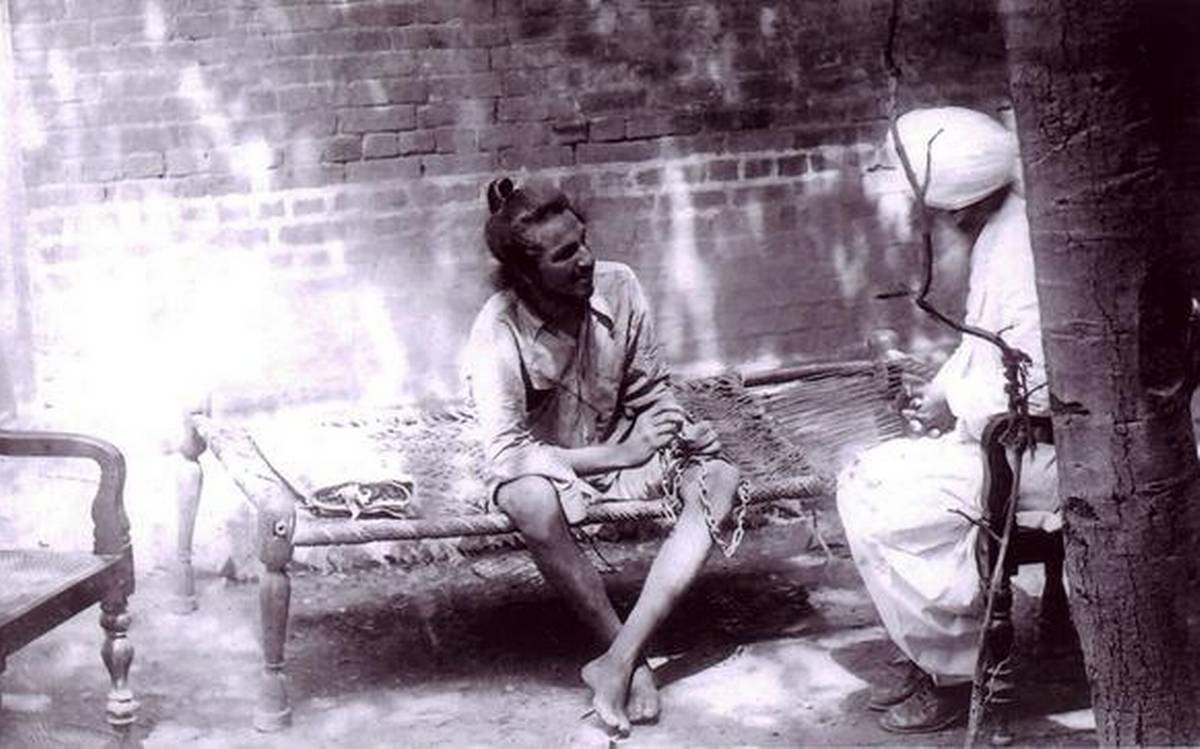 |
Source
 Support Us
Support Us
Satyagraha was born from the heart of our land, with an undying aim to unveil the true essence of Bharat. It seeks to illuminate the hidden tales of our valiant freedom fighters and the rich chronicles that haven't yet sung their complete melody in the mainstream.
While platforms like NDTV and 'The Wire' effortlessly garner funds under the banner of safeguarding democracy, we at Satyagraha walk a different path. Our strength and resonance come from you. In this journey to weave a stronger Bharat, every little contribution amplifies our voice. Let's come together, contribute as you can, and champion the true spirit of our nation.
 |  |  |
| ICICI Bank of Satyaagrah | Razorpay Bank of Satyaagrah | PayPal Bank of Satyaagrah - For International Payments |
If all above doesn't work, then try the LINK below:
Please share the article on other platforms
DISCLAIMER: The author is solely responsible for the views expressed in this article. The author carries the responsibility for citing and/or licensing of images utilized within the text. The website also frequently uses non-commercial images for representational purposes only in line with the article. We are not responsible for the authenticity of such images. If some images have a copyright issue, we request the person/entity to contact us at This email address is being protected from spambots. You need JavaScript enabled to view it. and we will take the necessary actions to resolve the issue.
Related Articles
- Cross Agent and the hidden truth of massacre of Jallianwala Bagh - Martyrdom of Shaheed Bhagat Singh (Some Hidden Facts)
- Santi Ghosh and Suniti Choudhury: Two Teenage Freedom Fighters Assassinated British Magistrate
- A Great man Beyond Criticism - Martyrdom of Shaheed Bhagat Singh (Some Hidden Facts)
- Our first true war of independence lie forgotten within the fog of time and tomes of propaganda: Sanyasi Rebellion, when "renouncers of the material world" lead peasants in revolt against British and fundamentalist islamic clans
- Jhalkaribai: The Indian Rebellion Of 1857 Who Took on British Forces Disguised as Laxmibai
- Saraswathi Rajamani, at 16, became the youngest and first female spy for INA, boldly recruited by Netaji in 1942, courageously spent two years spying on the British in Myanmar during WWII, a pivotal yet overlooked heroine in India's struggle for freedom
- "Nak-Kati-Rani": Defying Shah Jahan, Rani Karnavati of Garhwal inflicted unprecedented humiliation on the Mughal army, cutting off their noses; her invincible spirit remain unsung in mainstream history, overshadowing the grand tales of emperors
- Unsung Heroine Pritilata Waddedar, Who Shook The British Raj at the age of 21
- Vinayak Damodar Savarkar – A Misunderstood Legacy
- Hero of Pawankhind: Veer Maratha Bajiprabhu Deshpande, who led 300 Soldiers against 12000 Adilshahi Army defending Shivaji
- Valiant Marathas and the far-reaching effects of the loss of 3rd battle of Panipat: Jihad of the temple destruction
- Kartar Singh Sarabha - The Freedom fighter who was Hanged at the age of 19 and inspired Bhagat Singh
- Fearless female sniper Uda Devi, who etched history during the Siege of Lucknow!
- The Trap in Lahore - Martyrdom of Shaheed Bhagat Singh (Some Hidden Facts)
- Taimur was attacked and defeated by 20 year old Rampyari Gurjar and her army of 40,000 women
